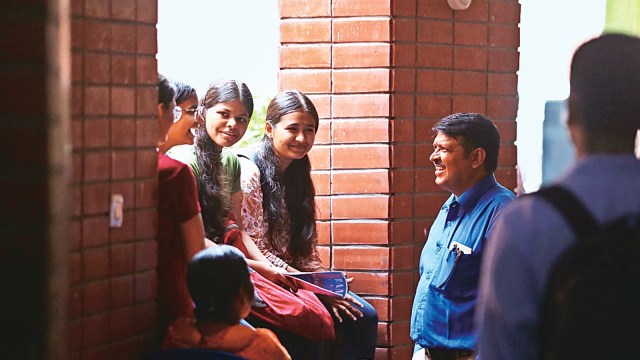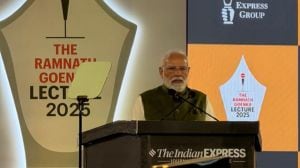Round 2 of BTech admissions at DU: What’s filled, What’s still up for grabs
Each of the three BTech programmes at DU – Computer Science and Engineering, Electrical Engineering, and Electronics and Communication Engineering – can accommodate 120 students.
 The university is now preparing to initiate the second phase of seat allocation across its UG courses early next week.
The university is now preparing to initiate the second phase of seat allocation across its UG courses early next week. With the second round of BTech admissions at Delhi University (DU) underway, while all 120 seats in the Computer Science and Engineering programme have been filled, several seats continue to remain vacant in the Electrical Engineering as well as Electronics and Communication Engineering courses. Of the 360 seats across the three programmes, 338 have been filled so far, The Indian Express has learnt.
Each of the three BTech programmes at DU – Computer Science and Engineering, Electrical Engineering, and Electronics and Communication Engineering – can accommodate 120 students. These were introduced in the 2023–24 academic session, and students are inducted on the basis of their performance in the JEE (Main) examination.
After the minimum Common Rank List (CRL) cut-offs for the second round of seat allocation was issued by DU, while the Computer Science and Engineering programme has closed admissions for the year, Electrical Engineering has so far filled 76 seats while Electronics and Communication Engineering has admitted over 90 students, according to data reviewed by The Indian Express.
As for the integrated law programme, which was also introduced in 2023-24 and offers 120 seats, the interest remains high.
According to the admission data, over 3,425 students have registered or expressed interest in the course so far, and 1,785 of them have paid the registration fee. The university had to go up to the fifth admission list last year to fill all seats in this programme.
The BTech and integrated law programmes are being offered by Delhi University’s Faculty of Technology and Faculty of Law, respectively. These courses were introduced as part of the university’s expansion under the National Education Policy.
The admission process for both continues to run separately from the central undergraduate Common Seat Allocation System (CSAS) used for most undergraduate courses at DU. Students coming from families with an annual income of less than Rs 4 lakh are eligible for a fee waiver of up to 90% in the BTech and the five-year integrated law programmes.
The university is now preparing to initiate the second phase of seat allocation across its UG courses early next week. This will be contingent on the declaration of the CUET-UG results, which are awaited.
“If the CUET results are announced this week, we expect to begin the second phase of admissions early next week. Students are advised to keep their college preferences ready,” said Haneet Gandhi, Dean of Admissions at DU.







